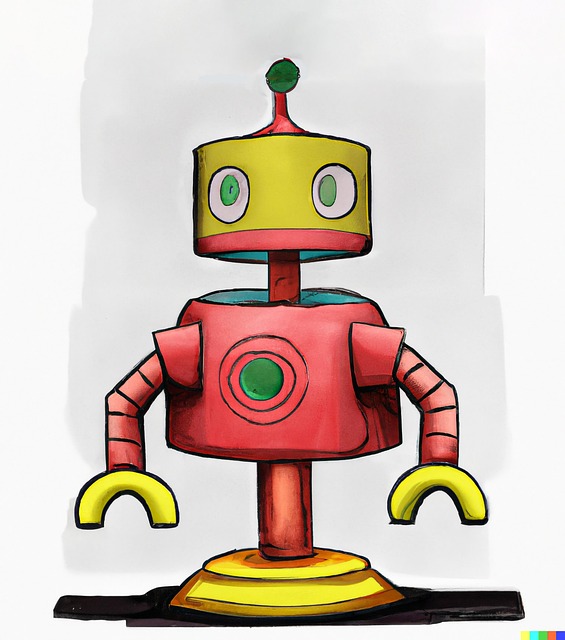# Reimagining Tomorrow: How AI Technology is Revolutionizing Industries and Daily Experiences
Artificial Intelligence (AI) is no longer a concept confined to science fiction; it has become an integral part of our daily lives and various industries. From healthcare to finance, AI technology is reshaping how we operate, make decisions, and interact with the world around us. This article explores the profound impact of AI on different sectors and how it is transforming our everyday experiences.
## Transforming Healthcare: Precision and Efficiency
In the realm of healthcare, AI is revolutionizing the way medical professionals diagnose and treat patients. Advanced algorithms can analyze vast amounts of data from medical records, imaging, and even genetic information, leading to more accurate diagnoses. For example, AI-driven tools can identify patterns in imaging scans that might be missed by the human eye, enabling earlier detection of conditions such as cancer. This capability not only improves patient outcomes but also enhances the efficiency of healthcare systems.
Moreover, personalized medicine is becoming a reality thanks to AI. By leveraging data analytics, healthcare providers can tailor treatments to individual patients based on their unique genetic makeup and lifestyle factors. This shift toward precision medicine allows for more effective interventions and minimizes the trial-and-error approach that has traditionally characterized treatment plans. As AI continues to evolve, its integration into telemedicine and remote monitoring will further streamline healthcare delivery, making it more accessible and efficient.
The administrative side of healthcare is also benefiting from AI advancements. Automating routine tasks such as appointment scheduling, billing, and patient follow-ups frees up valuable time for healthcare professionals, allowing them to focus on patient care. As a result, the overall efficiency of healthcare systems improves, leading to better resource allocation and cost savings. In essence, AI is not just enhancing clinical practices but is also reshaping the operational landscape of healthcare.
## Revolutionizing Finance: Smart Decisions and Risk Management
In the financial sector, AI technology is driving significant changes in how institutions assess risk, manage investments, and engage with customers. Algorithms capable of processing vast datasets in real-time are enabling financial analysts to make informed decisions faster than ever before. By utilizing machine learning, financial institutions can identify market trends and anomalies that may indicate potential investment opportunities or risks.
Risk management has also seen a transformation through AI. Predictive analytics tools can assess creditworthiness and detect fraudulent activities more accurately than traditional methods. By analyzing historical data and identifying patterns, AI systems can flag unusual transactions, thereby safeguarding institutions and their clients from potential losses. This proactive approach to risk management not only protects financial assets but also enhances customer trust.
Customer service in finance is undergoing a revolution as well. Chatbots and virtual assistants powered by AI are transforming how customers interact with banks and financial services. These tools provide instant responses to inquiries, assist with transactions, and offer financial advice based on individual needs. The result is a more personalized and efficient customer experience, which is crucial in a highly competitive market. As AI continues to evolve, we can expect even more sophisticated tools that will redefine customer engagement in finance.
## Enhancing Daily Experiences: Convenience and Personalization
AI’s influence extends beyond industries; it is also significantly enhancing our daily experiences. Smart home devices equipped with AI technology are becoming commonplace, allowing users to control their environment with ease. From adjusting thermostats to managing security systems, these devices learn user preferences over time, creating a seamless integration into daily routines. This level of convenience not only saves time but also promotes energy efficiency, contributing to a more sustainable lifestyle.
In the realm of entertainment, AI is reshaping how we consume content. Streaming platforms utilize sophisticated algorithms to analyze viewing habits and preferences, providing personalized recommendations that enhance user satisfaction. This tailored approach ensures that users discover content that aligns with their interests, creating a more engaging and enjoyable experience. Additionally, AI-driven content creation tools are emerging, enabling creators to produce high-quality media with greater efficiency.
Shopping experiences are also being transformed by AI technology. E-commerce platforms are leveraging AI to offer personalized product recommendations, streamline the purchasing process, and enhance customer service. Virtual fitting rooms and augmented reality applications allow customers to visualize products before making a purchase, reducing the likelihood of returns and improving overall satisfaction. As AI continues to advance, we can anticipate even more innovative solutions that will redefine the retail landscape.
## Conclusion: Embracing the Future
The integration of AI technology into various industries and daily experiences is a testament to its transformative power. As we move forward, the potential for AI to enhance efficiency, improve decision-making, and personalize experiences is boundless. However, it is essential to approach this evolution with a focus on ethical considerations and the implications of AI on society. By fostering collaboration between technology developers, policymakers, and the public, we can ensure that the benefits of AI are harnessed responsibly.
Looking ahead, the future of AI holds immense promise. As advancements continue to unfold, industries will become more interconnected, and daily experiences will become increasingly enriched by intelligent systems. Embracing this change will not only redefine how we live and work but will also pave the way for a more innovative and sustainable tomorrow. As we reimagine the possibilities, one thing is clear: AI technology is not just a tool; it is a catalyst for a new era of human experience.











